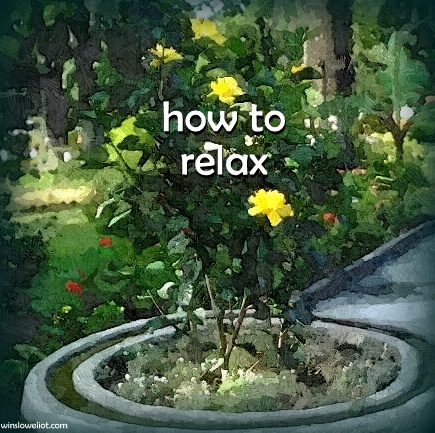
Stillness 10-8: It’s not always easy to relax. We’re busy. We tend to feel guilty if we’re not accomplishing or trying to meet a goal of some sort. Or we have a tremendous need to be there for other people. Relaxing feels selfish. It’s akin to slacking.
But the word “relax” originates in an Old French word relaschier, which means “to set free, to soften.” The Latin relaxare also has the meanings of “to loosen, open, stretch out, widen again.” Laxus means “wide, spacious, roomy,” or, more figuratively, “loose, free.” (Our current meaning of “relief from hard work or ordinary cares” doesn’t show up till the 16th century.)
Relaxing is crucial to our well-being. We experience tremendous surges of growth, development, learning, and doing throughout our lives. But, as with plants, these surges only penetrate in conjunction with equally vital stretches of rest and relaxation. After strenuous exercise, our bodies need to relax and stretch. We need to be relaxed when we eat or our digestion will be screwy. We need to relax our thinking, so that our thoughts can drift by like clouds on a quiet summer afternoon. We need to relax our feelings so that there’s plenty of room for harmony and calm. Yes, relaxation is vital.
Probably the only way to truly relax is through regular practice. The more we consciously practice relaxing, the more it happens automatically. So, starting today, make the decision to relax often and deeply. Soften your thoughts. Take time to play. Take time to rest. Focus on your breath. Loosen your feelings, giving them spaciousness and plenty of room. Let them widen inside you. Let them get comfortable.
Let your heart swell so that it can encompass more peace, more rest, more love. Expand into relaxation and rest—and when you do, you’ll find that other people are able to relax too.
